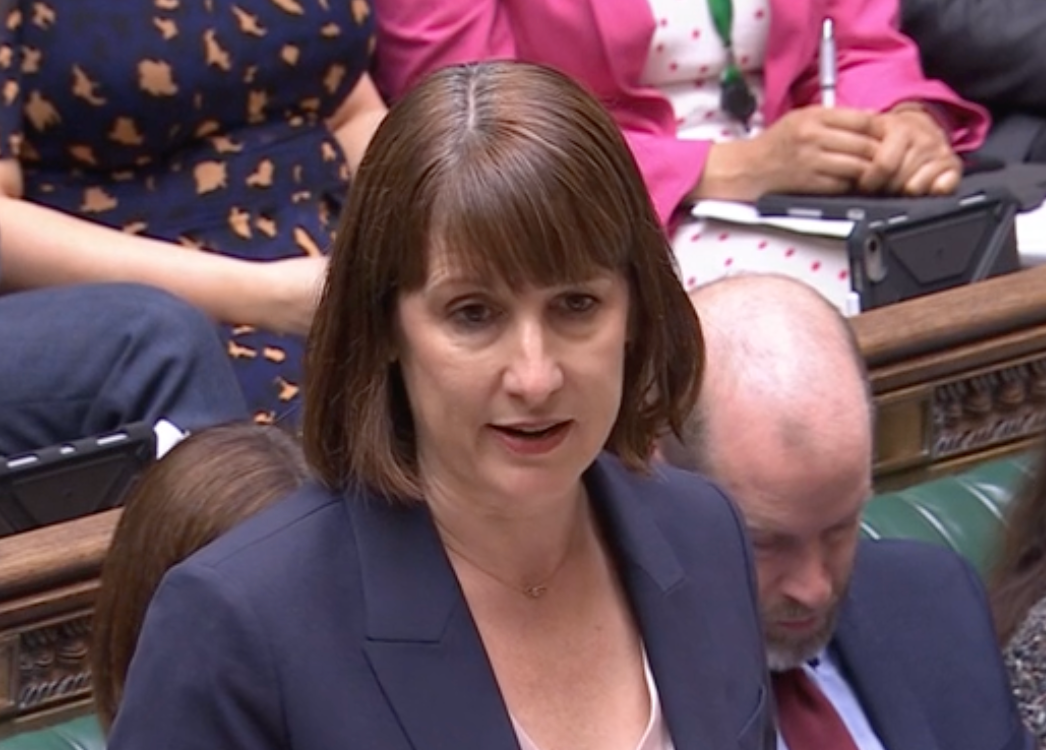Reeves paints a grim fiscal picture – but she must take responsibility for some of it
The chancellor puts the ‘black hole’ in the public finances at £22bn – but the real surprises are in how she intends to fill it, says James Moore


So there’s a £22bn “black hole” in Britain’s public finances – even larger than the £20bn we had been led to expect would be unveiled in the chancellor’s Commons statement.
It was scarcely credible for Reeves to pretend for so long that it was a surprise to find that the numbers didn’t add up. Everyone knows that Britain is in a fiscal bind. Paul Johnson, head of the Institute for Fiscal Studies, said that the “last government left public finances in a bad state”.
Yet some of the hole is of Reeves’s own making, with roughly half coming from her decision to agree to accept the recommendations of the various public sector pay review bodies in full.
This, said Reeves, was “the right decision for the people who work in and use public services”. She added: “Giving hardworking staff the rises they deserve [ensures] we can recruit and retain the staff we need.”
Now, this is a perfectly credible position to take. And it is one that ought to help with the delivery of improved public services.
But, while justified, the rises were always going to need paying for, either by tax rises or by cuts elsewhere. Some of the savings designed to do that were widely expected: the previous government’s promise to build 40 new hospitals, which was proceeding at the speed of a dyspeptic snail with a broken foot, is now under review. Some road and rail projects have been canned, and the economy will have to take one for the team there.
“If we cannot afford it, we cannot do it,” said Reeves. Repeatedly. Comedians and satirists take note: by the time the chancellor sat down, it was looking like a catchphrase.
What else? The farcical policy to ship asylum seekers to Rwanda is gone. Promises to speed up processing and to stop using hotels for housing those waiting for decisions have also been made. How that works in practice remains to be seen. If the processing problem was easily fixed, then it would have been dealt with by now.
We also heard the recently dumped phrase “levelling-up”, because projects are being cancelled. So are plans for a new Advanced British Standard qualification. If we cannot afford it, we cannot do it.
The previous government’s plan for a retail sell-off of part of the government’s remaining NatWest stake has been shelved. From an economic standpoint, that makes all sorts of sense. It is cheaper to sell off your shares to City institutions. The discounts you have to offer them to gobble up big chunks are much smaller than the public would demand.
Some people whose taxes bailed out what was then the Royal Bank of Scotland may feel somewhat miffed at being denied the chance to make a quick buck through participating in the re-privatisation of the bank. But Reeves’s approach offers better value to the vast majority of taxpayers, many of whom wouldn’t have had access to the capital necessary to take part.
But then came a real surprise: in future, pensioners’ winter fuel payments will (in effect) be means-tested and linked to certain benefits, saving £1.5bn. Reeves stressed that she is retaining the triple lock, which increases the state pension in line with average earnings, inflation, or 2.5 per cent, whichever is higher. This is a massive fiscal bugbear and increasingly hard to justify.
Pensioner poverty has dramatically fallen. Child poverty, on the other hand... But even Reeves, at the height of her political powers, didn’t dare renege on Labour’s pledge to keep it. So we’re going for rich pensioner benefits instead. I wouldn’t be surprised to see more of this in the future.
Will these measures balance the books? For now. But there will be more pain to come on 30 October, set as the date for Reeves’s first Budget. I’d suggest replacing the famous red box with a black one, except that would cost money. And, as we know, there isn’t much of the latter around.






Join our commenting forum
Join thought-provoking conversations, follow other Independent readers and see their replies
Comments